In today’s digital world, media perception is of utmost importance. The way you are perceived online dictates, in a way, who you are to the outside world. With social media, it is possible for one to present themselves in any way they wish. This leads to a lack of authenticity, and calls to question what is ‘real’ and what is not.
A prime example of the construction of identity in the digital world and its impact on society is the 2024 election in the United States.
This election has proved to be a tense race as opposing parties fight for the presidency. Social media has played a huge role in this—as well as advertisements. Kamala Harris and Donald Trump’s campaign teams have produced video advertisements airing on American television networks. These video segments paint each portray these politicians in negative lights in order to sway voters to not cast their vote for them. This propaganda (in a sense) is a direct example of the construction of identity.
Dekker and Veld note in, The Internet Holds the Powers That Be, “An important element is image marketing and management…opponents spread online rumors that can keep the accused away from governing; “dirty” Internet tricks and e-“smear” campaigns hurt leaders’ and candidates’ images…” (Dekker & Veld, 2014, p. 160). This further demonstrates how the media is being used in political campaigns and as a ‘weapon’ to sway voters one way or another. Leaders are able to smear one another relatively unchecked by taking their campaigns to social media.
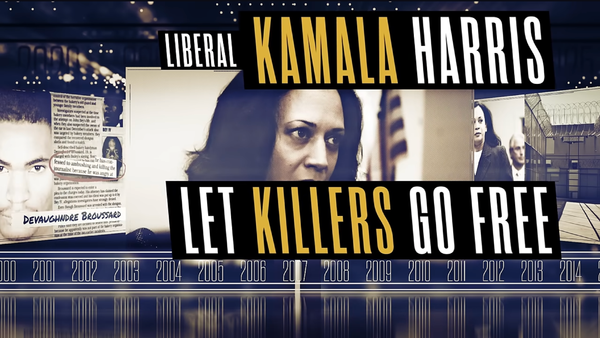
Trump campaign advert, 2024 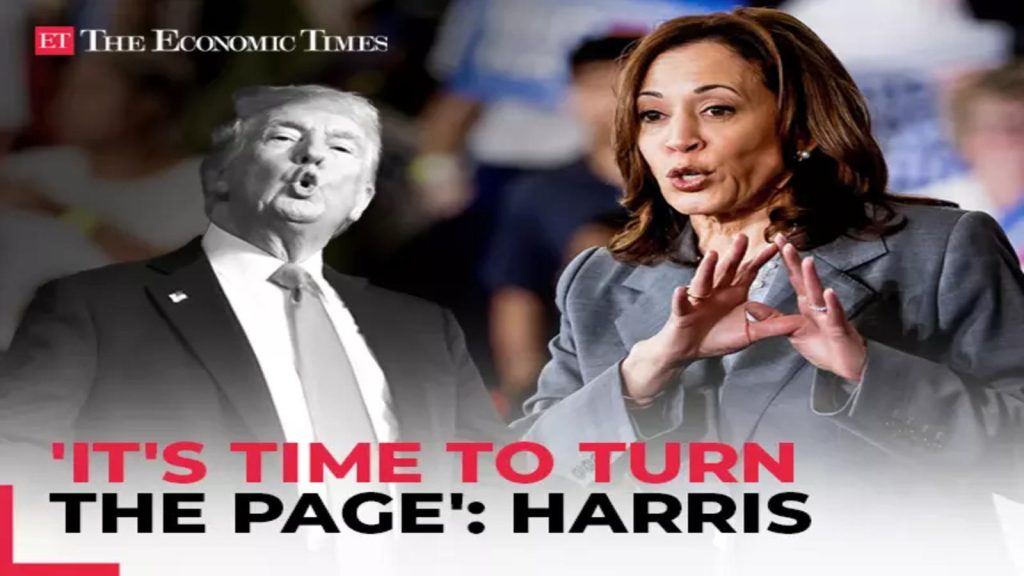
Harris campaign advert, 2024 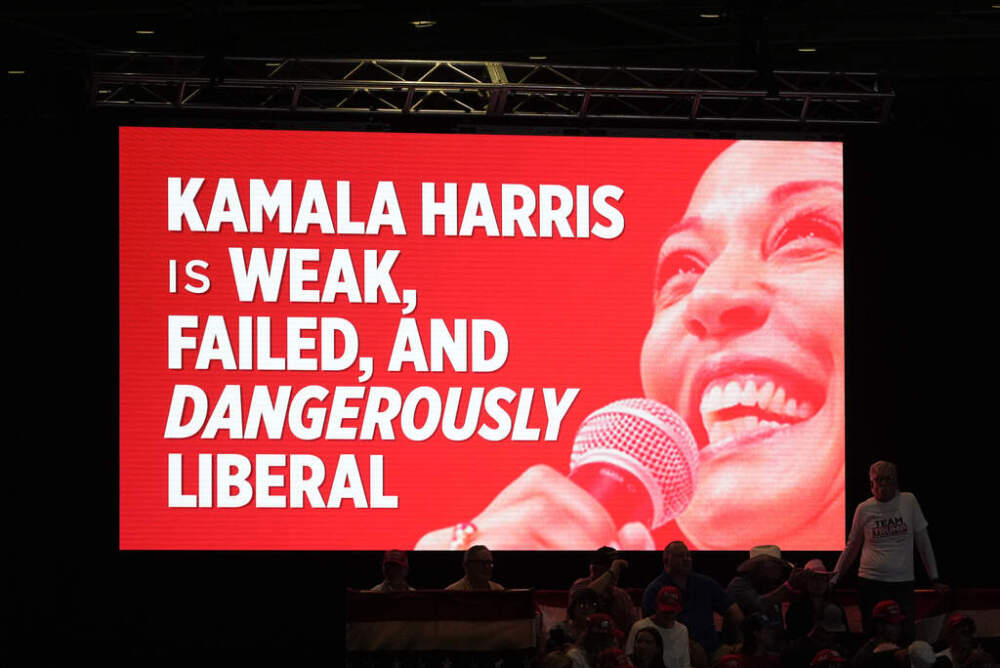
Trump campaign advert, 2024 (AP Photo/Jae C. Hong)
The hope of the campaign runners is that they can convince you that one candidate or the other is not fit for the job. This biased point of view demonstrates how these parties have constructed each other’s identities. Their marketing teams are attempting to control the way they are perceived—they are essentially building an identity of their opponent in order to urge voters to vote for them.
In this day and age, social media is an important part of campaigning in order to reach all demographics. TikTok, specifically, has been utilized to appeal to younger voters. The Harris campaign specifically has made efforts to contribute to online trends in order to garner support and portray a sense of camaraderie.
Harris’ marketing team has been able to reach the Gen-Z demographic in order to pull this election in her favor. Her team is constructing who Harris will be as president through the power of social media. The growing popularity of TikTok has only made way for more demographics to be influenced by this campaign strategy.
Whether these tactics will be successful for either candidate is yet to be seen, but it is clear that the digital world significantly contributes to the construction of identity across all spheres. Marketing maneuvers such as these have a way of manipulating what consumers are supposed to see. And, with an election as important as this one, it can be extremely risky.
References
Dekker, Henk, and Arie in ‘t Veld. “The Internet Upholds the Powers That Be.” E-Political Socialization, the Press and Politics: The Media and Government in the USA, Europe and China, edited by Henk Dekker et al., Peter Lang AG, 2014, pp. 157–82. JSTOR, http://www.jstor.org/stable/j.ctv2t4csq.11. Accessed 4 Nov. 2024.

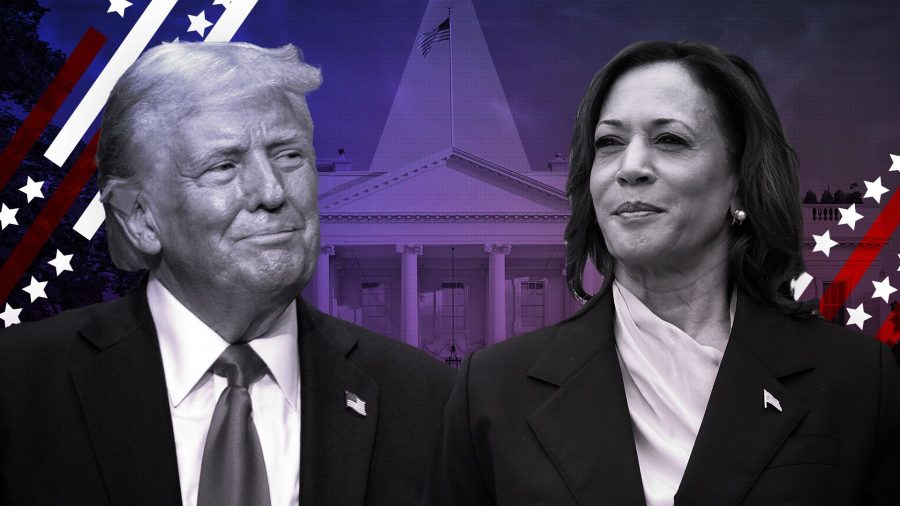
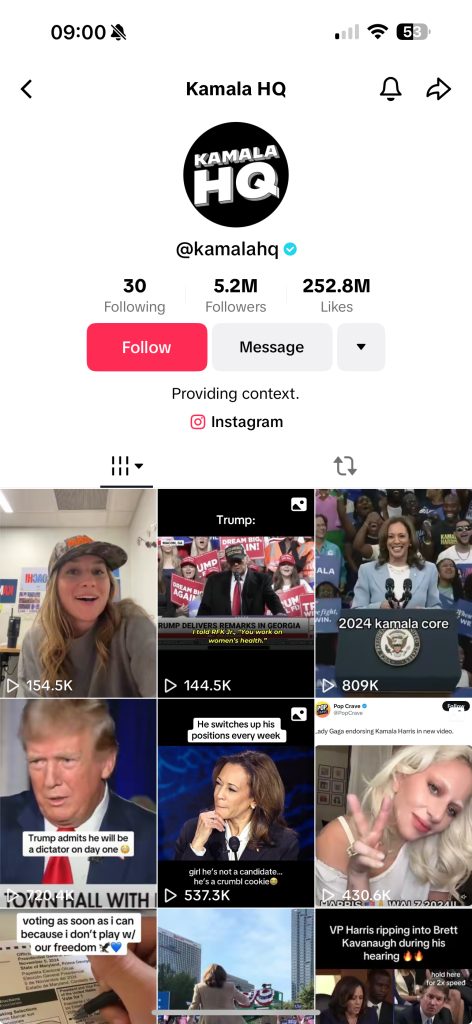
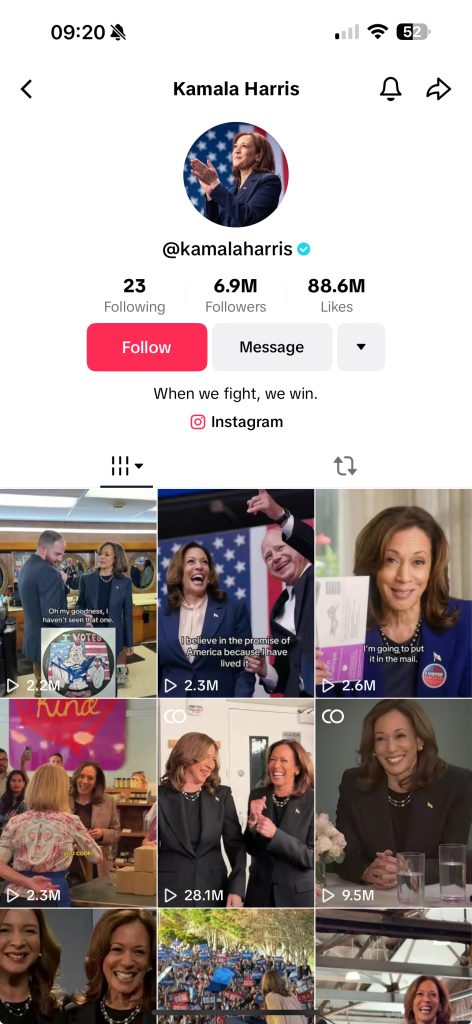
This blog gives a good look at how the digital world influences politics, especially during the U.S. election. It explains well how social media has become an important tool for political campaigns, helping candidates build their images and attract voters. The idea of “identity construction” is clear, showing how candidates’ images are shaped by media in today’s digital world.
I would like to add that this idea of building identity on social media affects not only the candidates but also regular users. By sharing, liking, and commenting, users help shape public opinion, which also reflects their own identities. Social media is not only impacting candidates, it is also guiding public behavior.
As a suggestion, the blog could talk more about whether these identities on social media are real. Since many people depend on social media for information, should we have stronger rules to make sure the information is true? Looking at how different age groups use social media would also make the blog even better. In summary, this is a great blog and I hope my suggestions will be helpful to you.
In today’s digital age, the media undeniably has a powerful influence on public figures, especially in the political sphere. In the 2024 U.S. election, social media has become a primary tool for both sides to shape each other’s images, with candidates competing to portray their opponents negatively through ads and social media content. This phenomenon reveals the vast power media holds in constructing identities in contemporary society. However, while these strategies attract attention, they may also lead the public to question the authenticity of the candidates, potentially even causing political fatigue.
Overall, this blog provides a strong analysis of the media’s role in constructing images during the 2024 U.S. election. A little suggestion, it could benefit from further explanation of the theoretical background. Nice blog!
This post connects with the US election. It’s not only a good idea, but it ties in with what’s been happening recently. In recent years the political election wars have intensified on social media. Through the creation of identities on social media, many times elections are marked by ‘political deception’ and ‘deliberate smearing’. A newspaper that publishes yellow journalism can affect its credibility, but social media not only has a lot of traffic, it also has very little to lose. Social media creates an environment where candidates can easily demonstrate relevance or authenticity; however, these can be carefully designed. Especially for younger viewers, distinguishing between authentic qualities and performances can be challenging, as politicians’ social media presence often mimics the tactics of influencers.
Great post! You’ve captured the importance of digital media in shaping political identities really well. It’s interesting how you pointed out that social media allows candidates not only to construct their own images but also to manipulate how their opponents are seen.The example of Harris’ campaign using TikTok to appeal to Gen-Z is a great point. It really shows how political socialization has shifted, especially for younger voters who rely heavily on social media for information.